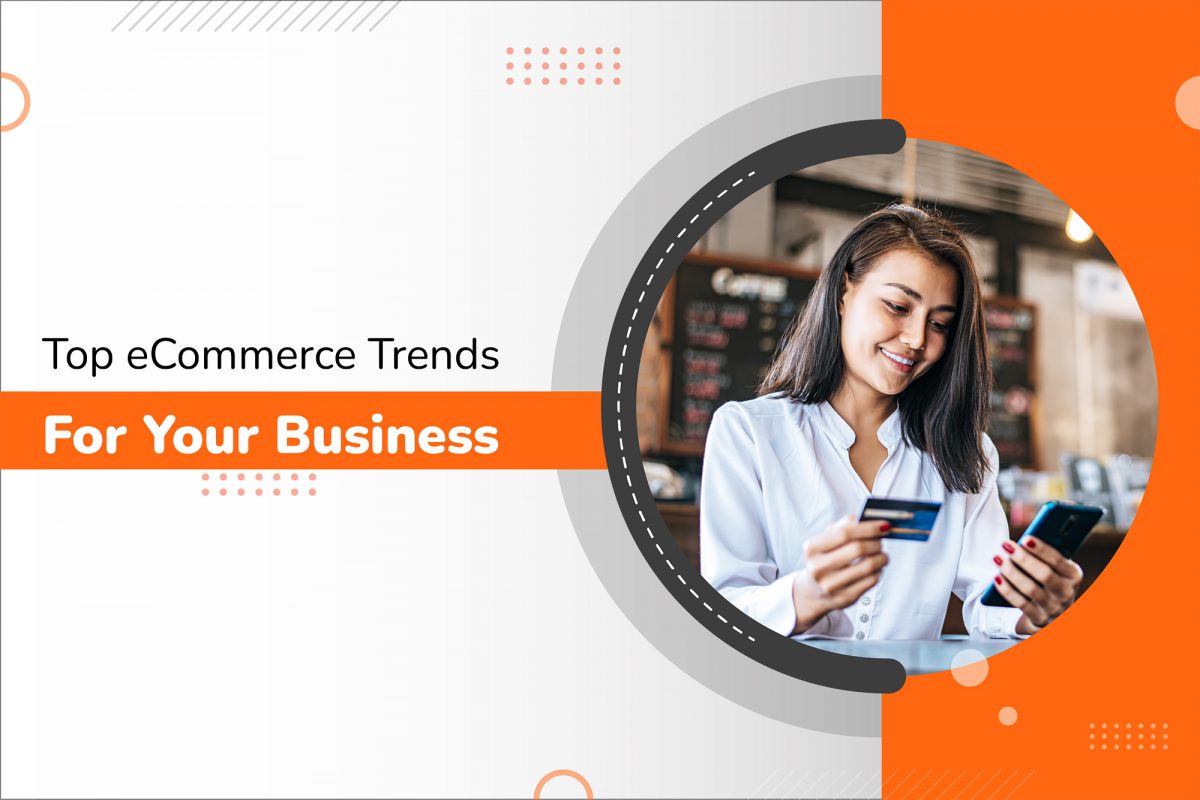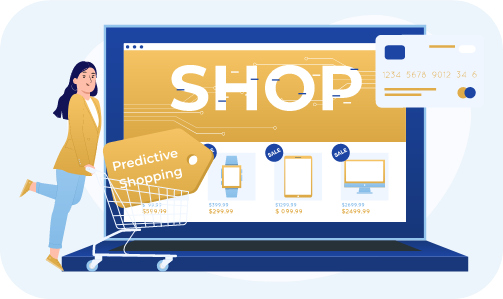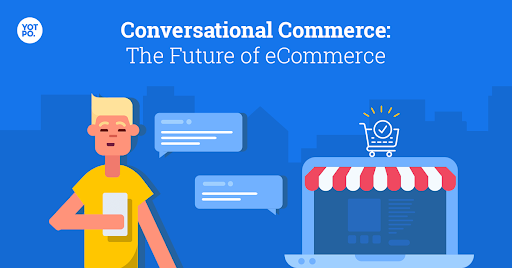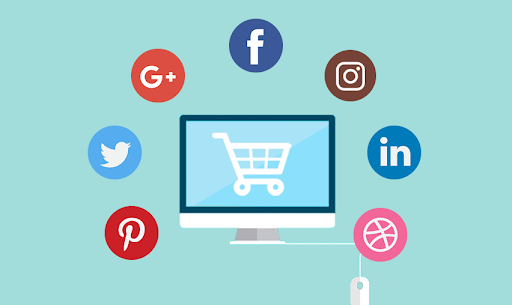
Top eCommerce Trends for your Business
E-commerce is the biggest trend in growing your business, but it can be hard to know what the trends are and how to incorporate them into your own business.That's why we've put together this list of top eCommerce trends that you need to know about if you want to stay on top of the game.
Big Data
Big Data. It’s the new oil, it's the future and it's a huge opportunity for eCommerce businesses. But if you want to make money off of this data goldmine, you better be ready for some challenges.Big Data is a huge challenge because there are so many ways that your business could use this powerful resource and they might not all be good ones! For example: Do you really need more customers? Is your product or service worth paying for? Is there any way that could make sense financially speaking…or not even at all (like hiring someone else)? These questions can be difficult to answer when dealing with Big Data; however, there are some ways that we've found helpful in helping us start thinking about how we can utilize our own unique set of circumstances when considering whether or not something fits into our overall strategy moving forward."
Predictive shopping
 Predictive analytics is the use of data and models to make predictions about future events. It’s used in a variety of industries, from healthcare to retail. Predictive analytics helps businesses improve their products or services based on what their customers will want next.
Predictive analytics is the use of data and models to make predictions about future events. It’s used in a variety of industries, from healthcare to retail. Predictive analytics helps businesses improve their products or services based on what their customers will want next.
One example is predictive shopping: predicting customer behavior by analyzing past purchases, preferences, and purchasing patterns. For example, you might use predictive analytics tools like Google Analytics or Omniture SiteCatalyst (formerly Unica) to understand which customers are likely to purchase additional items in your store based on product pages they visit before buying anything else; then you could send them targeted messages about those products when they return later that day/week/month, etc., which would increase sales overall.*
Customer Relationship Management
 Customer Relationship Management (CRM) is a system that helps you manage your customer interactions. It’s an important part of every eCommerce business and can help you identify, prioritize and manage your customers' needs.
Customer Relationship Management (CRM) is a system that helps you manage your customer interactions. It’s an important part of every eCommerce business and can help you identify, prioritize and manage your customers' needs.
CRM helps you to build relationships with them because it allows you to send them personalized updates on new products, discounts, and other promotions. By doing so, they will feel valued and want to continue buying from you in the future!
Personalization and Customization
 The Internet is a place where you can be yourself and express your individuality. You can wear what you want, say what you want, buy what you want, and even design your own products or services. This is all possible because of technology that allows people to customize their experiences on the web.
The Internet is a place where you can be yourself and express your individuality. You can wear what you want, say what you want, buy what you want, and even design your own products or services. This is all possible because of technology that allows people to customize their experiences on the web.
In fact, personalization has become one of the most important eCommerce trends in 2019 because it allows consumers to create their own online shopping experience by choosing from a variety of options based on their preferences and needs. The goal here isn't just about creating something new; it's about making sure customers feel engaged with their purchases throughout every step along the way—from finding products online to purchasing them at checkout (if applicable).
Blockchain technology
 Blockchain technology is a digital ledger that records transactions across many computers. It’s not just a way to keep track of your money; it can also be used to track and verify transactions. Blockchain technology is a distributed database, so you don’t need to rely on one central authority—the network itself keeps track of all information in real-time, making it impossible for anyone to manipulate the data or change any information once it has been entered into the system.
Blockchain technology is a digital ledger that records transactions across many computers. It’s not just a way to keep track of your money; it can also be used to track and verify transactions. Blockchain technology is a distributed database, so you don’t need to rely on one central authority—the network itself keeps track of all information in real-time, making it impossible for anyone to manipulate the data or change any information once it has been entered into the system.
Blockchain developers have created several blockchain platforms for eCommerce businesses that allow them to manage KYC (know your customer) processes more effectively, streamline payments and settlements, and reduce fraud risk by making it easy for customers who want anonymity from their purchases (such as those made online) can still do so while also increasing security against hackers trying break into systems from outside sources like malware attacks."
Artificial Intelligence
 Artificial Intelligence (AI) is becoming more prevalent in eCommerce. AI can help with things like product recommendations and searches, customer service, and inventory management.
Artificial Intelligence (AI) is becoming more prevalent in eCommerce. AI can help with things like product recommendations and searches, customer service, and inventory management.
AI is the ability of a computer to perform tasks that normally require human intelligence. For example, Google uses machine learning algorithms to personalize search results based on previous searches or browsing history; Facebook's facial recognition technology identifies friends in photos; Tesla uses deep neural networks to improve self-driving cars' performance; Amazon uses speech recognition software that can translate words into the text from third-party languages like Spanish rather than relying on humans who might not be fluent in those languages.
Conversational commerce
 Conversational commerce is an area of eCommerce that is growing fast. It's all about using chatbots to interact with customers and use AI to understand their needs, solve problems, or find information.
Conversational commerce is an area of eCommerce that is growing fast. It's all about using chatbots to interact with customers and use AI to understand their needs, solve problems, or find information.
Chatbots can be used for customer service and marketing as well as products themselves.
Mobile First
 Mobile First is a strategy that focuses on mobile devices first, then moves to other devices. This means that you should build your website around the mobile user experience and design it so that it’s easy for users to navigate around and use once they get there.
Mobile First is a strategy that focuses on mobile devices first, then moves to other devices. This means that you should build your website around the mobile user experience and design it so that it’s easy for users to navigate around and use once they get there.
This can be best seen in the way Facebook pages are optimized for smartphones: they have no sidebar or sidebars at all; all content appears directly in a single column above the fold, and images are large enough to be seen clearly even if they aren't zoomed in close enough (as opposed to smaller thumbnails).
Social Media E-commerce
 Social media has become the fastest growing channel for eCommerce, and for good reason. It's a great way to build brand awareness and customer relationships, and increase sales and loyalty.
Social media has become the fastest growing channel for eCommerce, and for good reason. It's a great way to build brand awareness and customer relationships, and increase sales and loyalty.
Social media is also a great place to get feedback on your products or services. If you have a question about something related to your business, you can set up an account on Facebook or Twitter and ask people directly what they think about this product or service. This will help you improve everything from packaging design to pricing structure before launching it out into the world!
VOC (Voice of Customers)
 VOC (Voice of Customers) is a powerful tool for e-commerce. It can give you a better understanding of your customers, help you improve your products and services, and even find out what they want.
VOC (Voice of Customers) is a powerful tool for e-commerce. It can give you a better understanding of your customers, help you improve your products and services, and even find out what they want.
VOC helps businesses get to know their customers by giving them the opportunity to share their opinions on various aspects of the company's product or service. By listening carefully, companies can identify areas where they need improvement within the organization as well as ways to attract new consumers in order to grow their business over time.
Virtual Reality
 Virtual reality is a computer-generated simulation of a three-dimensional image or environment that can be interacted with in a seemingly real or physical way by a person using special electronic equipment, such as a helmet with a screen inside or gloves fitted with sensors.
Virtual reality is a computer-generated simulation of a three-dimensional image or environment that can be interacted with in a seemingly real or physical way by a person using special electronic equipment, such as a helmet with a screen inside or gloves fitted with sensors.
Virtual reality is different from augmented reality (AR) because AR overlays digital information on top of the real world, whereas virtual reality replaces what you see with an alternate version of itself.
Personalization
 Personalization is the ability to personalize your product or service to the needs of a specific individual. It’s a key element of customer experience, and it can be achieved by using data to create a more customized experience for customers.
Personalization is the ability to personalize your product or service to the needs of a specific individual. It’s a key element of customer experience, and it can be achieved by using data to create a more customized experience for customers.
For example, if you sell shoes online and know that one customer has high arches but struggles with finding shoes with arch support, then you could use this information as an opportunity for customization by offering custom orthotics or insoles in your store (or via email).
E-Commerce is the biggest trend in growing your business
E-commerce is the future of business. It’s a growing trend that has already been proven to increase sales, customer satisfaction, and brand recognition.E-commerce is more than just buying something online; it’s about connecting with customers on your own platform (or through their preferred channel), providing them with a superior experience at every step of the shopping journey, and engaging with them long after they've left your site. This means creating an experience that's tailored for each individual customer before they even have time for regretting what they bought or how much it cost!
